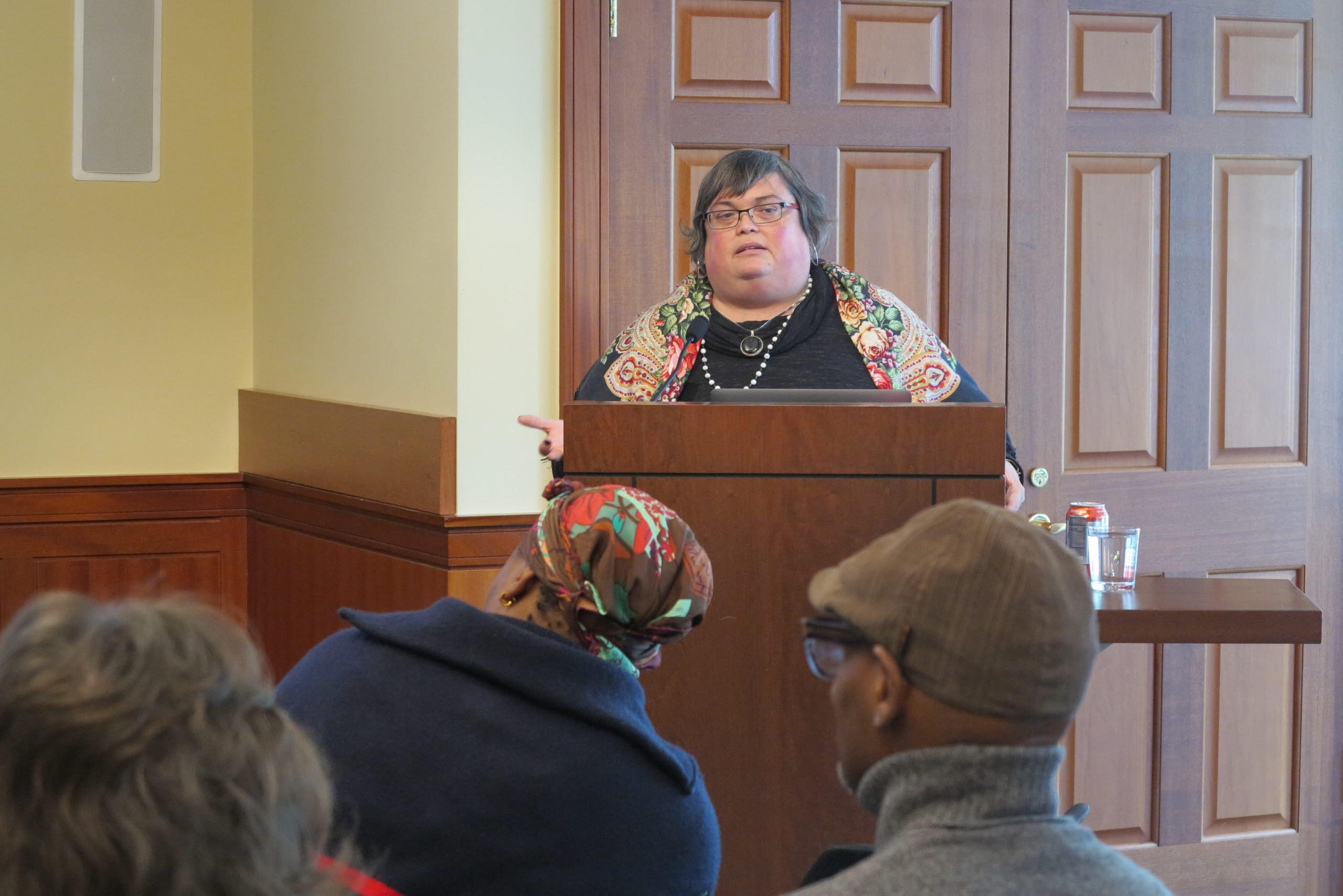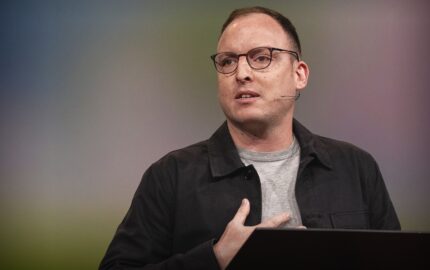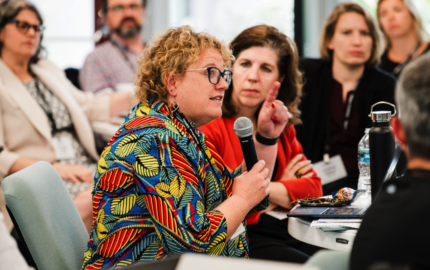Joan Donovan’s work has dug deep into the world of memes, disinformation, media, and the internet. Donovan is the Research Director of the Shorenstein Center on Media, Politics and Public Policy at Harvard University. At the Shorenstein Center, Donovan leads the Technology and Social Change Research Project, which studies misinformation, media manipulation, and adversarial media movements. Her recent book, “Meme Wars: The Untold Story of Online Battles Upending Democracy in America,” co-written with Emily Dreyfuss and Brian Friedberg, examines how the far right has weaponized memes to spread disinformation online and promote their ideology.
Donovan spoke to Nieman Fellows in October about how memes and disinformation metastasize online, the future of Twitter after Elon Musk’s acquisition, and ways journalism can re-imagine how it engages with the internet. Edited excerpts:
On what Twitter’s future means for journalists
Hope is what you grasp for when you're completely lost, [but] I don't think we're that lost. I think we know very closely what the problems are. If we wanted to take the power back for Twitter, it starts with journalists because it's completely irrelevant as a platform if journalists aren't using it. All of the media manipulation campaigns and disinformation campaigns that we see laced throughout Twitter are bait for journalists. And in some respects, it mimics journalism and weirdly mocks it. So, if journalists were to get organized and move to a platform that — I'm not saying it's going to happen all at once or overnight or that this is the only solution — but politicians would be talking to each other. They wouldn't stay on Twitter.
If the project of journalism as a social institution is to survive this, it will do so by modernizing in the public interest and by working together and not separately. What I tell news executives is that it's their business model, too, that is in the way. If you wanted to solve media manipulation and disinformation and breaking news, The New York Times would retweet the Wall Street Journal, would retweet WaPo, would retweet any news organization that has the correct information at the time. The reason why the far-right can lace the internet with disinfo in those moments is because they're highly networked and coordinated in those networks.
That's what algorithms react to. If algorithms are the distribution system or the capillary system we call journalism, then you have to actually work together to affect those algorithms. For far too long, news media has believed, “Well this is my lane, this is my silo, these are my journalists, and our brand is what counts here.” But in a system like Twitter, for instance, journalism in the public interest is going to die on the vine because it doesn't understand the technology. There are ways to take back the power, of course, but it requires organizing. There's no magic bullet, you know, that would get us beyond this unless mainstream media learns to work together, at least through this moment.
On how newsrooms can combat disinformation
I think it's really important that you add, against your editor's wishes, a little bit about newsgathering into every story revealing how you got this information. Limiting anonymous sourcing or hollow sourcing is one way to gain that kind of trust from the audience. And especially in cases where you're talking about media manipulation or disinformation, your readers want to know how you know that. One of the most impactful ways I've seen that done was in a WaPo article where they had two videos about the “Nancy Pelosi is drunk” video. They showed the normal one next to the slowed down one, and you could play with it as the reader and understand what that kind of simplistic editing technique could do.
The worst thing that could happen through this technological transition is that people just give up on the truth. I don't think we're there yet. I hear a lot about this post-truth society. I don't think people are post-truth. I think people more than ever want something to believe in, they want a purpose, and news and information are different, and news is something that is being impersonated online. And I think that fact is something that we need to call attention to continuously. But teaching people how the sausage is made in the story — your editor is going to be inclined to sit out, [but] try to fight them on it, just a sentence or two. That might be enough.
On how journalism can re-imagine social media
When I'm saying get off Twitter, I’m think[ing] about how journalism [can] build its own public interest networking tool. Is it the case that you have a social network app [where] journalists online post their stories and other people can comment but only verified journalists can post? What are the gatekeepers there? The problem with content moderation on YouTube and Twitter and Facebook especially, is they are everything for everyone platforms.
You're giving your content away on Twitter for free, and Musk or anybody at Twitter is making money off your clicks, likes, and shares. You're giving away your value as journalists as well. There are a lot of good reasons why you would rethink the infrastructure of journalism through a different digital mechanism. This is why I think the current business models of large news organizations are somewhat misunderstanding how the internet works, in particular around this decentralized “everybody's in it for everyone” kind of framework. They think, “Okay, I can control my brand somehow on Facebook,” which you really can't. It behooves journalism as an industry to come up with its own solution to this.
I want you to envision these platforms as empty libraries. Every book on that wall, someone had to write that book and put it there. Twitter is an empty library without your tweets, there's nothing on the shelves and there's no reason to go there. You can imagine as things progress and people start to migrate to other platforms, it'll be fractured for a while. When people go through hard times, they come up with very creative solutions. I'm hoping that this hard time brings us more technological creativity [not] owned by an individual.
We need to really start to think about, what are the technological solutions? We have to ask, what do journalists want out of this? What do you think is the best way forward? We should never design without talking to the people who are most affected by the thing that we are building. And I think that that's the major fault line of Twitter is that they weren't employing journalists or librarians or anybody that has any true knowledge of how information flows. When we first built these things, it was a data project by and large. We introduce those knowledge markers back into those systems and give them more power to make things that work for the professions that we value.



